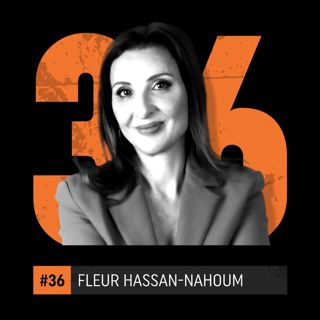
'There is no hope—but there is faith': 5 Israeli Thinkers on the country's future
Do you have more hope or fear for Israel and the Jewish People?We asked this question to 40 Israeli Thinkers over the last year. For the first time, come behind the scenes to Sruli Fruchter's favorite answers and the secret behind the question.Here are our top 5 answers from:5. Gadi Taub4. Shani Taragin3. Rachelle Fraenkel2. Yossi Klein Halevi1. Anshel Pfeffer18Forty launched its new website! This is your address for today’s biggest Jewish questions. Please enjoy rummaging through our trove of podcasts, essays, videos, and more. Happy searching!
8 Syys 24min

'The status quo cannot be maintained': 6 Israeli Thinkers on if Palestinian-Israeli peace is still possible
Do you think peace between Israelis and Palestinians will happen within your lifetime?We asked this question to 40 Israeli Thinkers over the last year. For the first time, come behind the scenes to Sruli Fruchter's favorite answers and the secret behind the question.Here are our top 5 answers from:6. Yakov Nagen5. Netta Barak Corren4. Mikhael Manekin3. Nechumi Yaffe2. Rula Daood1. Yoav Heller18Forty launched its new website! This is your address for today’s biggest Jewish questions. Please enjoy rummaging through our trove of podcasts, essays, videos, and more. Happy searching!
2 Syys 34min

'The government doesn't make its case': 5 Israeli Thinkers on criticizing Israel
What is the most legitimate criticism leveled against Israel today?We asked this question to 40 Israeli Thinkers over the last year. For the first time, come behind the scenes to Sruli Fruchter's favorite answers and the secret behind the question.Here are our top 5 answers from:5. Benny Morris4. Uri Zaki3. Einat Wilf2. Yishai Fleisher1. Michael Oren18Forty launched its new website! This is your address for today’s biggest Jewish questions. Please enjoy rummaging through our trove of podcasts, essays, videos, and more. Happy searching!
25 Elo 19min
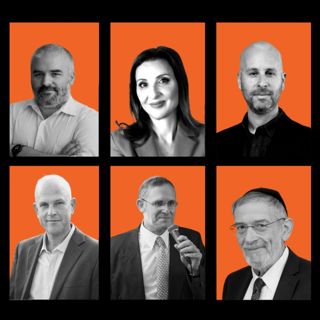
'Our reliance on power': 6 Israeli Thinkers on Israel's Greatest Success and Mistake in the Gaza War
What has been Israel's greatest success, and greatest mistake, in its war against Hamas?We asked this question to 40 Israeli Thinkers over the last year. For the first time, come behind the scenes to Sruli Fruchter's favorite answers and the secret behind the question.Here are our top 6 answers from:6. Fleur Hasan-Nahoum5. Haviv Rettig-Gur4. Yaakov Katz3. Michael Melchior2. Micah Goodman1. Mosheh Lichtenstein18Forty launched its new website! This is your address for today’s biggest Jewish questions. Please enjoy rummaging through our trove of podcasts, essays, videos, and more. Happy searching!
18 Elo 58min
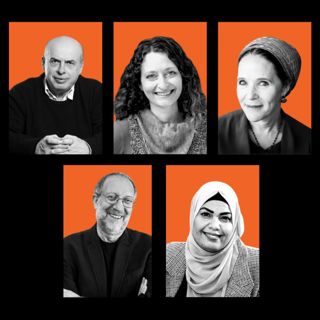
'Still a deeply divided society': 5 Israeli Thinkers on how they feel today
As an Israeli, and as a Jew, how are you feeling at this moment in Israeli history?We asked this question to 40 Israeli Thinkers over the last year. For the first time, come behind the scenes to Sruli Fruchter's favorite answers and the secret behind the question.Here are our top 5 answers from:5. Natan Sharansky4. Netta Barrak Corren3. Yossi Klein Halevi2. Rachelle Fraenkel1. Khitam Abu Bader18Forty launched its new website! This is your address for today’s biggest Jewish questions. Please enjoy rummaging through our trove of podcasts, essays, videos, and more. Happy searching!
11 Elo 44min
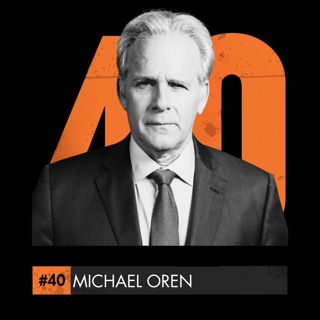
Michael Oren: 'We are living in biblical times'
Israel is a heroic country, Michael Oren believes—but he concedes that it is a flawed heroic country.Michael Oren—our 40th Israeli thinker—served as Israeli ambassador to the U.S. from 2009-2013 under Prime Minister Benjamin Netanyahu, while former U.S. President Barack Obama was in office. A diplomat, writer, historian, veteran, and political thinker, Michael worked extensively in all fields of defending the Jewish state. He is the bestselling and award-winning author of several fiction and non-fiction books, including Ally: My Journey Across the American-Israeli Divide and Six Days of War: June 1967 and the Making of the Modern Middle East. Michael is working on a book on October 7. Now, this unapologetic Israel advocate joins us to answer 18 questions on the war in Gaza, the IDF's morality, and satanic accusations against Jews.This interview was recorded on July 10.
14 Heinä 1h 4min
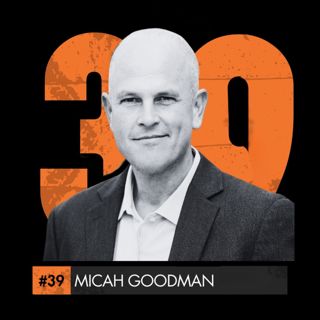
Micah Goodman: 'I don't want Gaza to become our Vietnam'
Micah Goodman doesn't think Palestinian-Israeli peace will happen within his lifetime. But he's still a hopeful person.Named by the Jerusalem Post as one of the 50 most influential Jews, Micah is a public intellectual, writer, and author whose voice is central to the moral, political, and religious debates raging within Israel.He is the author of several best-selling books — including The Wondering Jew, Catch 67, The Dream of the Kuzari, and The Last Words of Moses — and co-host of the popular Israeli podcast Mifleget Hamachshavot.Now, he joins us to answer 18 questions on criticizing Israel, resettling Gaza, and Jewish democracy.This interview was recorded on July 6.
7 Heinä 1h 8min
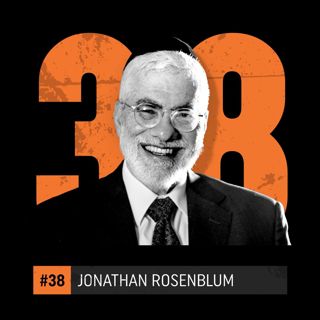
Jonathan Rosenblum: 'Would you want to live in a country run by Haredim?'
Talking about the "Haredi community" is a misnomer, Jonathan Rosenblum says, and simplifies its diversity of thought and perspectives.A Yale-trained lawyer turned journalist, Jonathan has been a prolific Haredi columnist for the last few decades. He helped found the English-language Haredi publication Yated Ne’eman, wrote extensively for The Jewish Observer, and writes weekly for Mispacha magazine.Jonathan is also the author of over 10 biographies of Orthodox rabbinic leaders and was the first Haredi columnist to write regularly for the Jerusalem Post.Now, he joins us to answer 18 questions on the Haredi draft, Zionism, and Israel as a religious state.This interview was held on June 23.
30 Kesä 1h 16min
